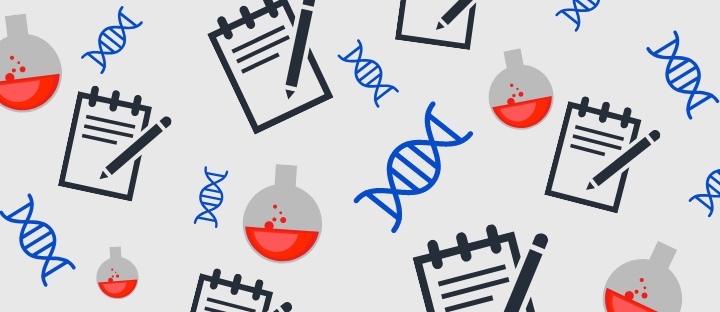#ScienceSaturday posts share relevant and exciting scientific news with the KAND community, and are compiled by Alejandro Doval. Alejandro is from Spain and serves as Team Leader of the KIF1A.ORG parent-led Research Engagement Team. Send news suggestions to our team at impact@kif1a.org.
Recent KIF1A-Related Research
Rett and Rett-Like Syndrome: Expanding the Genetic Spectrum to KIF1A and GRIN1 Gene
New research links pathogenic variants of KIF1A, GRIN1 and others to Rett syndrome. Published in September 2019, this research highlights the need for genetic testing to accurately diagnose rare disease patients. KIF1A.ORG calls for collaboration with these similar rare disease communities to better identify and serve our patient populations.
KIF1A Variants Are a Frequent Cause of Autosomal Dominant Hereditary Spastic Paraplegia
Published in September 2019, a study of 347 patients with spastic paraplegia found 24 individuals with a KIF1A gene variant, including some loss-of-function mutations found outside the motor domain. This research builds our understanding of how widely KIF1A mutations can vary: from gain-of-function mutations to loss-of-function mutations, both within and outside of the motor domain. This range in dysfunction of the KIF1A gene is a likely explanation of the range of severity and symptoms we see in KAND patients.
Rare Disease News
Girl Diagnosed with Fatal Brain Disease Gets a Tailor-Made Drug within a Year
In this article from Live Science, we learn how researchers developed a customized antisense oligonucleotide (ASO) therapy for a girl named Mila in an effort to treat her fatal neurodegenerative disease. Driven by the family-led Mila’s Miracle Foundation, researchers developed the therapy in less than a year. Results from her first year of treatment show improvement in Mila’s condition. This and other examples of progress using ASO therapies makes the KIF1A.ORG team excited about its potential for KAND treatment.

(Image: © Cliff Grassmick/Digital First Media/Boulder Daily Camera via Getty Images)
NIH Funding Bolsters Rare Diseases Research Collaborations
The National Institutes of Health has awarded approximately $31 million in grants in fiscal year 2019 to 20 teams—including five new groups—of scientists, clinicians, patients, families and patient advocates to study a wide range of rare diseases.
Genetic Therapies for Neurodegenerative Diseases: an Interview with Sarah Tabrizi
This is a short interview with a British researcher specialized in the field of neurodegenerative diseases, specifically Huntington’s disease, whereby she forecasts what we can hope to expect in the upcoming 10 years regarding gene therapy applied to neurodegenerative diseases. Because Huntington’s disease is a neurodegenerative disease caused by a single gene defect, similar to KIF1A mutations causing KAND, our community can benefit from the progress and learnings made in the Huntington community.


[…] to research we shared last week connecting Rett Syndrome (RTT) to KIF1A, researchers from Murdoch Children’s Research Institute […]
[…] drug in less than one year for a girl living with Batten disease (a story we covered in our first #ScienceSaturday post), Rich and Terry are another powerful example of how families driven by their urgent need for […]
[…] and other genetic mutations to Rett syndrome. You might remember reading about this in a previous #ScienceSaturday post. In this new article, Ana Pena, PhD […]